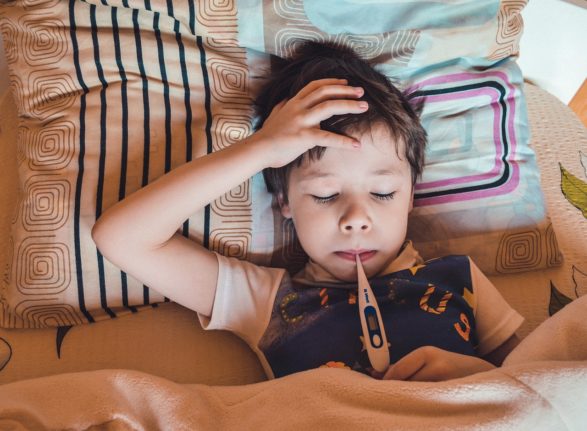The Conference of the European Health Psychology Society is examining the emotional and social aspects of well-being and looking at the latest research into what makes people happy.
The Local spoke to keynote speaker Professor Ruut Veenhoven from the Erasmus University Rotterdam, who founded the World Database of Happiness. He believes the key to happiness is being aware of the choices you have, and learning to make the right ones.
Researchers estimate that approximately 40% of our happiness depends on how we arrange our lives.
Veenhoven defines happiness as life-satisfaction, and says you can be a bad person and still be happy – whereas psychologists traditionally see a happy person as someone who is functioning well as a human being.
There are genetic reasons and external conditions that affect people’s happiness, but many people’s well-being is determined by how they choose to live, particularly in societies where individuals have a lot of choice.
“Things like finding the right partner, deciding how much you want to work, where you want to work, what country you want to live in – all affect your happiness,” says Prof Veenhoven.
He is currently working on an online tool called the Happiness Indicator – which is designed to make people more aware of their own happiness.
Participants periodically record how happy they feel, and then receive feedback in the form of a comparison with their earlier scores and with the average scores of similar participants.
The theory behind the website is that a keener awareness of one’s own happiness helps you to find an optimal lifestyle, and increase your well-being.
“If you realise that compared to other participants you feel really unhappy at work – that might prompt you to change your job,” Prof Veenhoven said.
Even the process of keeping a ‘happiness diary’ seems to make people happier. Participants who used the online tool 12 times and kept a diary reported an increased sense of happiness.
Danes 'happiest'
Prof Veenhoven said that people who live in countries or cultures with less choice tend to be unhappier. "Japanese people for example are comparatively well off but are often constrained in their choice of work and marriage partner, and have to respect their parents’ wishes."
They score 6.4 on the happiness index of 0 to 10 (with 10 being most happy). Austrians score 7.4, but are not as happy as the Danes who score 8.3 and report greater happiness with their country's bureaucracy and a greater equality between men and women.
Increasing your happiness and well-being is important as studies show that unhappy people die earlier than happy people – Prof Veenhoven says its roughly equivalent to the life expectancy difference between smokers and non-smokers.
Happiness also makes people more social and active, therefore happy people are generally better citizens, which means many governments are now keen to measure well-being and increase it.



 Please whitelist us to continue reading.
Please whitelist us to continue reading.
Member comments